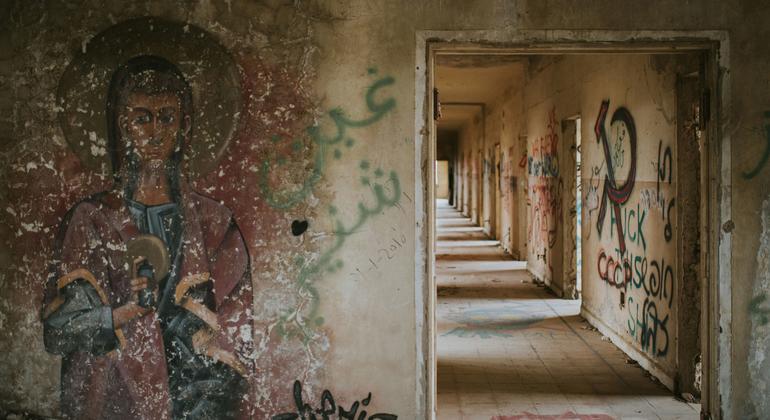Report exposes systematic torture in Syrian detention facilities
 The UN General Assembly-mandated team investigating serious crimes in Syria released a new report on Friday, documenting systematic torture and abuse across over 100 Government detention facilities.
The UN General Assembly-mandated team investigating serious crimes in Syria released a new report on Friday, documenting systematic torture and abuse across over 100 Government detention facilities.
Titled ‘The Syrian Government Detention System as a Tool of Violent Repression,’ the report from the UN International, Impartial and Independent Mechanism (IIIM) draws on over 300 witness interviews, medical forensic evidence and the Syrian Government’s own documentation. It reveals widespread human rights violations including sexual violence and enforced disappearances.
“Our report lays bare the harrowing reality within the Syrian Government detention system,” said IIIM Head Robert Petit. “The interview records of former detainees, corroborated by forensic medical evidence, reveal the severity of the mental and physical harm that was intentionally inflicted”.
Patterns of violence
Former detainees described severe physical and psychological abuse, including beatings, stress positions and sexual violence. The investigation documented inhumane conditions characterised by overcrowding, insufficient food and water, lack of hygiene and denial of medical care.
The investigation highlighted the ongoing trauma faced by victims’ families.
“Thousands of families bear the psychological toll of not knowing where their loved ones are,” Mr. Petit said.
“This is unimaginable psychological torture, yet the Syrian Government continues to intentionally withhold and cover-up information,” he added.
Path forward
Established in 2016 by UN General Assembly, the IIIM works to collect and preserve evidence for future accountability proceedings, though it cannot conduct trials. The report includes an interactive map of detention facilities and has been released in redacted format to protect witnesses.
Despite seeking cooperation from Syria, the IIIM has received no response but continues outreach efforts to states holding relevant evidence, demonstrating its commitment to impartial justice.
Mr. Petit emphasised the report’s significance: “We are making the Detention Report public and widely available, to contribute to the ongoing justice and accountability efforts, not only for past abuses but also those that continue to this day”.



